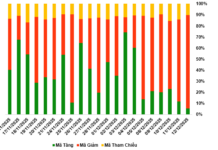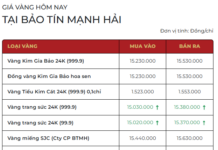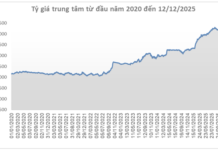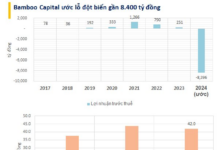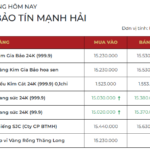Workers’ representatives have pointed out at the Social Insurance Law (amended) consultation workshops that many workers (WNs) start working and contribute to the Social Insurance Fund (SIF) at a young age, have contributed for enough years to enjoy 75% of their final salary in retirement pension, but still lack the required retirement age. Therefore, when they retire early, they have to receive a low pension. In this context, some have suggested exchanging excessive SIF contribution years for missing retirement years to allow employees to retire early.
Difficult to wait until retirement age
According to our records, there are many cases of workers with excessive SIF contribution years but lacking the required retirement age, especially since the retirement age has been raised according to the Labor Code 2019.
“Previously, if WNs retired early, each year of retirement before the prescribed age resulted in only a 1% reduction in the monthly pension rate. The current regulation, however, deducts 2% for each year of early retirement. Meanwhile, the number of SIF contribution years has also increased by 5 years, which is a major disadvantage for WNs,” said Mr. Luu Kim Hong, Chairman of the Labor Union of Nidec Vietnam Co., Ltd. (in the Hi-tech Zone, Thu Duc City, Ho Chi Minh City).
Working for a garment company in Phu Nhuan District, Ho Chi Minh City, Ms. Tran Thi Doan Trang (52 years old) has contributed to the SIF for over 29 years. In just a few months, she will complete the required 30 years to receive the maximum pension rate, but she will have to wait about 5 more years to retire due to the increased retirement age. Ms. Trang hopes to retire earlier than the prescribed age and have the extra SIF contribution time exchanged for retirement years.
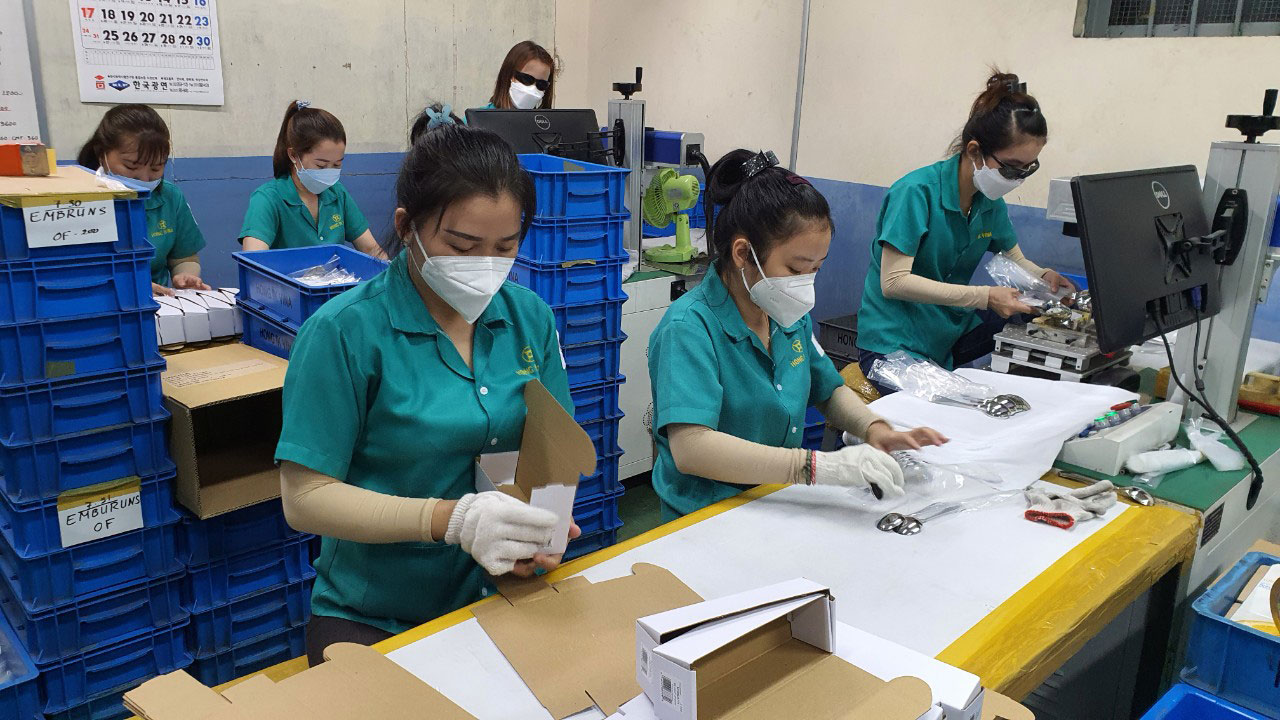
Workers expect to exchange their excessive SIF contributions for retirement years to access their pension earlier Photo: HONG DAO
Ms. Trang is worried that her prolonged sitting at the sewing machine has taken a toll on her health, and her productivity has declined, resulting in a reduction of her income. Therefore, she wants to retire early at the age of 55 (i.e. in 3 years), when she can receive her pension and have the option of returning to work for the company part-time (if the opportunity arises).
“The increased retirement age prolongs the working period, and by the time we reach retirement, our health will be exhausted. I’m only 52 years old, but my eyesight has deteriorated, and I often have back pain. However, if I quit working before reaching retirement age, I don’t know where I’ll find the money to support myself while waiting for my pension,” said Ms. Trang.
Working as a worker at a garment factory in Binh Tan District, Ho Chi Minh City, Ms. Nguyen Thi Hieu (48 years old, from Tra Vinh), started working at the age of 18 and has participated in the SIF for almost 30 years. She is disheartened to think that she will only retire in 12 years. “From the age of 45, signs of aging began to appear. I have also given birth to two children and contracted COVID-19, so my health has declined significantly. I hope to work for another 7 years and then retire.
Encourage employees to stay long-term
In an interview with us, Mr. Le Dinh Quang, Deputy Head of the Policy – Law Department (Vietnam General Confederation of Labor), supported the proposal to exchange SIF contribution time for retirement age in cases where the SIF contribution period exceeds the limit while the retirement age has not yet reached the legal requirement. “This is a very reasonable and practical request and needs to be studied and considered, but during the amendment of the Social Insurance Law,” said Mr. Quang.
Under the current regulations, the SIF participation period for receiving the maximum pension level (75%) is 35 years for male workers and 30 years for female workers. If the SIF contribution period exceeds this number of years, the WNs will receive a one-time allowance of 0.5 months’ salary for each additional year of contribution. Meanwhile, if WNs want to retire before the prescribed age, 2% will be deducted for each year of early retirement.
The majority of WNs working in direct production often retire early due to declining labor capacity and have to accept a percentage deduction, resulting in a lower pension. Therefore, the exchange will help improve pensions, allow WNs to enjoy their pension benefits earlier, and retain them in the social security system.
Agreeing with this proposal, Mr. Tran Van Trieu, Director of the Legal Counseling Center of the Ho Chi Minh City Labor Federation, believes that when stipulating the retirement age and the number of SIF contribution years required to receive the maximum pension, legislators have calculated to ensure that income covers expenditure. Furthermore, those with excessive contribution years are people who have participated in and contributed to the SIF for a long time, so there should be a policy to appropriately encourage them.
However, the one-time pension allowance of 0.5 months’ salary for each additional year of contribution is unreasonable and could lead WNs to make the decision to withdraw their SIF in one go because they believe it is more beneficial. Therefore, consideration should be given to allowing WNs, especially direct production workers with short working lives, to exchange their excessive contribution time to access their pension earlier to ensure their social security. “If the exchange is not possible, the one-time pension allowance should be increased to 2 months’ salary for each additional year of contribution,” suggested Mr. Trieu.
Lawyer DANG ANH DUC, Hanoi Bar Association:
Legitimate aspiration
Currently, the retirement age is being raised to 62 for men and 60 for women. In the context of many WNs entering the labor force at a very young age, they exceed the milestone to receive the maximum pension (30 years of SIF participation for women and 35 years for men) but do not yet meet the required age. Therefore, the proposal to exchange excessive SIF contribution years for retirement age in cases where the SIF contribution period exceeds the limit but the retirement age has not yet been reached is reasonable. The law drafting agency needs to consider and evaluate this proposal comprehensively, as it is a legitimate aspiration of WNs.




